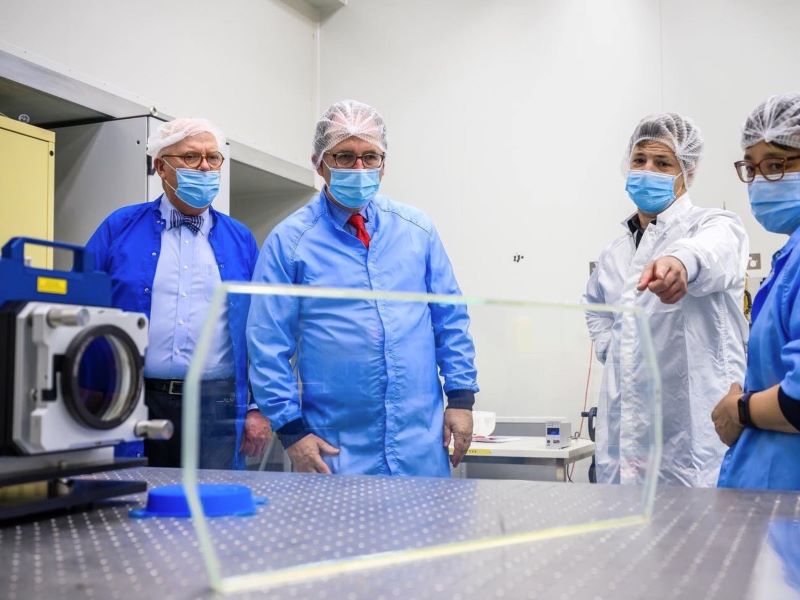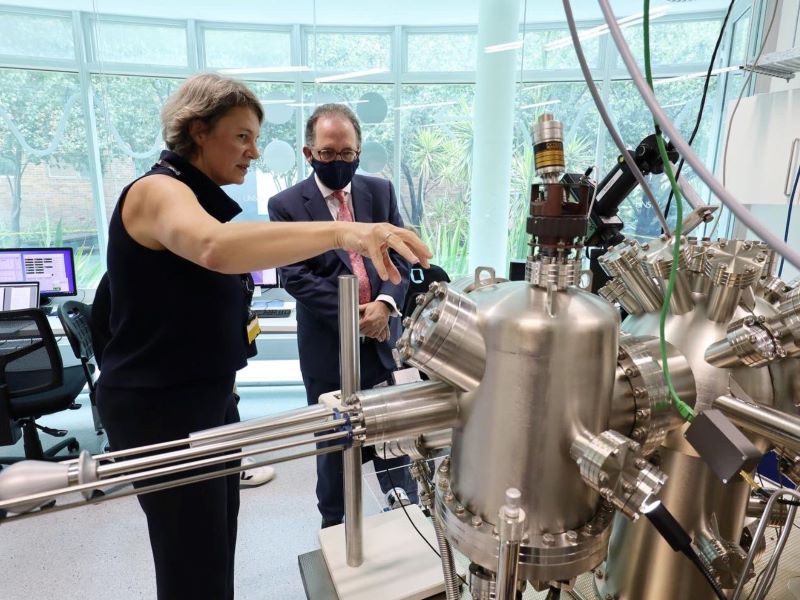New South Wales’ new Minister for Science, Innovation and Technology Alister Henskens has vowed to invest in innovation that lasts well beyond his own political career and potentially decades into the future, flagging a renewed focus on education and research collaboration to create the new industries and jobs.
Mr Henskens, who was handed the state new innovation portfolio in late December, spent his first month meeting with the government’s Chief Scientist and some of the state’s world leading quantum and medical university research hubs.
These areas of technological excellence didn’t arrive by chance, instead the result of 15 years of investment and support from some of the world’s best universities, Mr Henskens told InnovationAus, in his first industry interview since taking the role.

“15 years ago, people invested in quantum computing here in Sydney. And it’s now just got the greatest critical mass of research in the whole world,” he said.
Mr Henskens spent 25 years in law prior to politics and says he will bring the same forensic approach to innovation policy.
“You listen to your experts. It doesn’t mean that the experts always get it right, and there can be obviously conflicting opinions by experts – you’ve going to resolve those conflicts and try and work out where probably the best evidence lies.”
Elected to the ultra-safe Liberal seat of Ku-ring-gai in Sydney’s north in 2015, he briefly held the Families, Communities and Disability Services portfolio last year before being made minister for Skills and Training and minister for Science Innovation and Technology in the Perrottet cabinet reshuffle in December.
“The portfolio is about having an eye on that long term strategic investments in important areas in the next technologies that will reap the industries of the future, and the jobs of the future for our state.”
While not yet ready to detail exact plans or programs, Mr Henskens, said he will be focusing on improving the state’s “human capital” and lean heavily on the state’s Chief Scientist and Engineer, renowned robotics expert Professor Hugh Durrant-Whyte, for advice.
“If I’m looking at what jobs will my grandchildren be doing and maybe my great grandchildren, they’re not going to be in an economy where we’re going to have a strong, big coal mining industry, for example. That’s got a very definite life.
“And we’ve got to look at how we’re going to create value in this country where our comparative economic advantages are,” Mr Henskens said.
Perhaps the state’s greatest comparative advantage is its world leading institutions, Mr Henskens said, noting the University of Sydney and UNSW regularly ranking in the top 100 internationally, and UTS, Wollongong and Newcastle also sit within the top 200.
The research and education base gives New South Wales a global economic advantage provided it can translate the work.
On the advice of the New South Wales Chief Scientist and Engineer, Mr Henskens has already visited Sydney, UNSW and Macquarie universities and intends to visit every other university in the state to find out how to improve interdisciplinary, interinstitutional and industry collaborative research.
The role for a state government in the mix is to facilitate the collaboration, according to the new minister, who said it will increasingly occur in places like Sydney’s Tech Central, the Westmead Health and Innovation Precinct or the Western Sydney Aerotropolis.
“This whole idea of us bringing together industry, different universities — all collaborating together, working together, talking together to advance the commercialisation of their research is really important. And that’s something that government can do.”
Better targeted state funding to help New South Wales universities secure larger funding from its main federal source has also been raised with the minister early on by the universities.

By supporting collaborative, well funded university research in areas of comparative advantage New South Wales can create a virtuous ecosystem where international PhD students also move to the state to work with the world’s best and stay long after to run university spinouts, attracting even more of the world’s best minds.
It is already happening in areas like quantum technology and synthetic biology, Mr Henskens said, and with the right support can lead to Australia being a global leader in the emerging industries.
Mr Henskens told InnovationAus he will be making the point in cabinet meetings as well as advocating for STEM education more publicly, while working with the chief scientist on specific innovation programs.
“My role is very much to be the person within government to be advocating for the importance of these kind of human capital investments, human infrastructure around our knowledge nation and encouraging that.”
Do you know more? Contact James Riley via Email.

